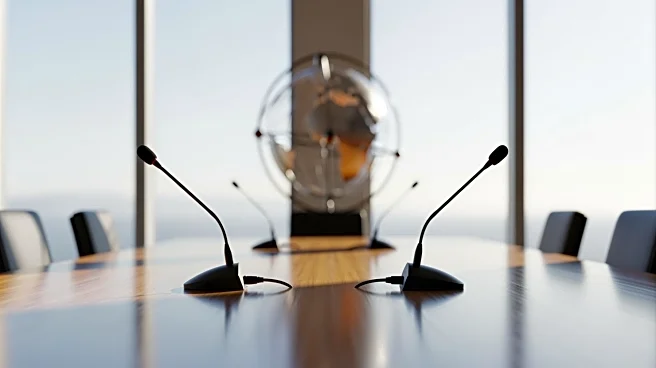What's Happening?
At the United Nations climate talks in Belem, Brazil, higher-ranking government ministers have taken over negotiations from lower-level officials. This shift marks the second week of the COP30 summit,
where ministers are expected to make critical political decisions. U.N. Climate Executive Secretary Simon Stiell emphasized the need for faster action, highlighting the gap between the pace of real-world economic changes and progress in negotiations. Brazil's Vice President Geraldo Alckmin and U.N. General Assembly President Annalena Baerbock have called for immediate action, citing recent climate disasters as evidence of the urgent need for change. The Brazilian presidency has issued a summary document addressing key issues such as emissions-cutting plans and climate financial aid.
Why It's Important?
The involvement of higher-ranking ministers at COP30 underscores the urgency of addressing climate change. Their decisions could significantly impact global efforts to reduce greenhouse gas emissions and combat climate change. The summit's outcomes may influence international policies and financial commitments, particularly for vulnerable nations facing existential threats from rising sea levels. The pressure to deliver on past promises, such as the $300 billion annual climate aid pledge, highlights the need for concrete actions rather than mere promises. The decisions made at COP30 could shape the future of global climate policy and determine the success of efforts to limit global warming to 1.5 degrees Celsius.
What's Next?
As the summit progresses, ministers will negotiate on contentious issues like emissions reduction and fossil fuel phaseout. The outcomes of these discussions could lead to new international agreements or commitments. The pressure from small island nations and other vulnerable countries may drive more ambitious climate actions. The Brazilian presidency's summary document will serve as a basis for negotiations, potentially leading to new strategies for achieving net-zero emissions. The involvement of former world leaders and scientists in advocating for stronger actions may influence the direction of the talks.











